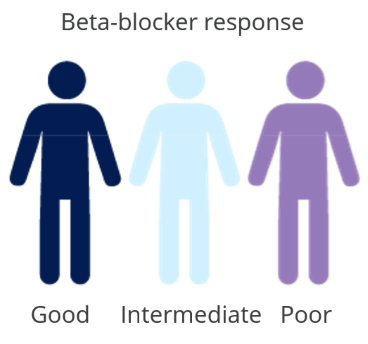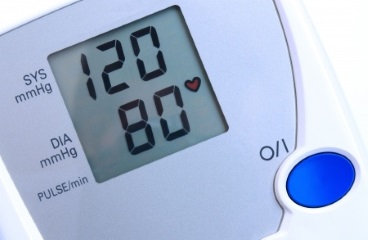 Beta-blockers don’t control blood pressure for everyone
Beta-blockers don’t control blood pressure for everyone
Long-term risk of diabetes. Confirm your response before taking this life-long drug
BP control and risk of diabetes
30 to 60% of hypertensive patients who are on beta-blocker monotherapy fail to respond adequately. 1 in 3 Asians have a variant gene, and may not benefit from beta-blocker treatment. Patients without the variant are more susceptible to high blood pressure than in the presence of the variant. But hypertensive patients with the variant respond poorly to beta-blockers and may need additional medication to prevent cardiovascular complications.
Better BP control, Lower risks
Long-term use of beta-blockers is known to lead to diabetes in non-diabetics. Thus, determining the drug response before usage is very important. Patients without the variant are more prone to high blood pressure, but will benefit from beta-blocker use and have lower risks of cardiovascular and cerebrovascular complications. In contrast, patients with the variant gene respond poorly to beta-blockers and may need alternative or additional medication to prevent cardiovascular and cerebrovascular complications.
Beta-adrenergic receptor activity and Beta-blocker response
Beta-blockers lower blood pressure by blocking certain hormones from binding to the beta-1 adrenergic receptor, ADRB1. A genetic variation in ADRB1 increases the risk for hypertension and reduces beta-receptor functioning. Thus, it lowers the therapeutic effect of beta-blockers. Patients with the variation may require additional antihypertensive medication to attain optimal blood pressure control and avoid the risk of myocardial infarction and stroke compared to normal genotype. In the absence of this variation, patients have good response to beta-blockers in controlling high blood pressure. With up to 2-fold higher chance of developing hypertension, this drug will be beneficial for them.
The test classifies patient response to beta-blockers by genotyping ADRB1 1165C>G using allele-specific real-time PCR. The method has almost 100% analytical accuracy and sensitivity. Patient’s relatives who are on beta-blocker therapy are also recommended to take this test.

References
Wang H et al. 2013, Molecular Biology Reports
Liggett SB et al. 2006, Proceedings of the National Academy of Sciences of the USA
